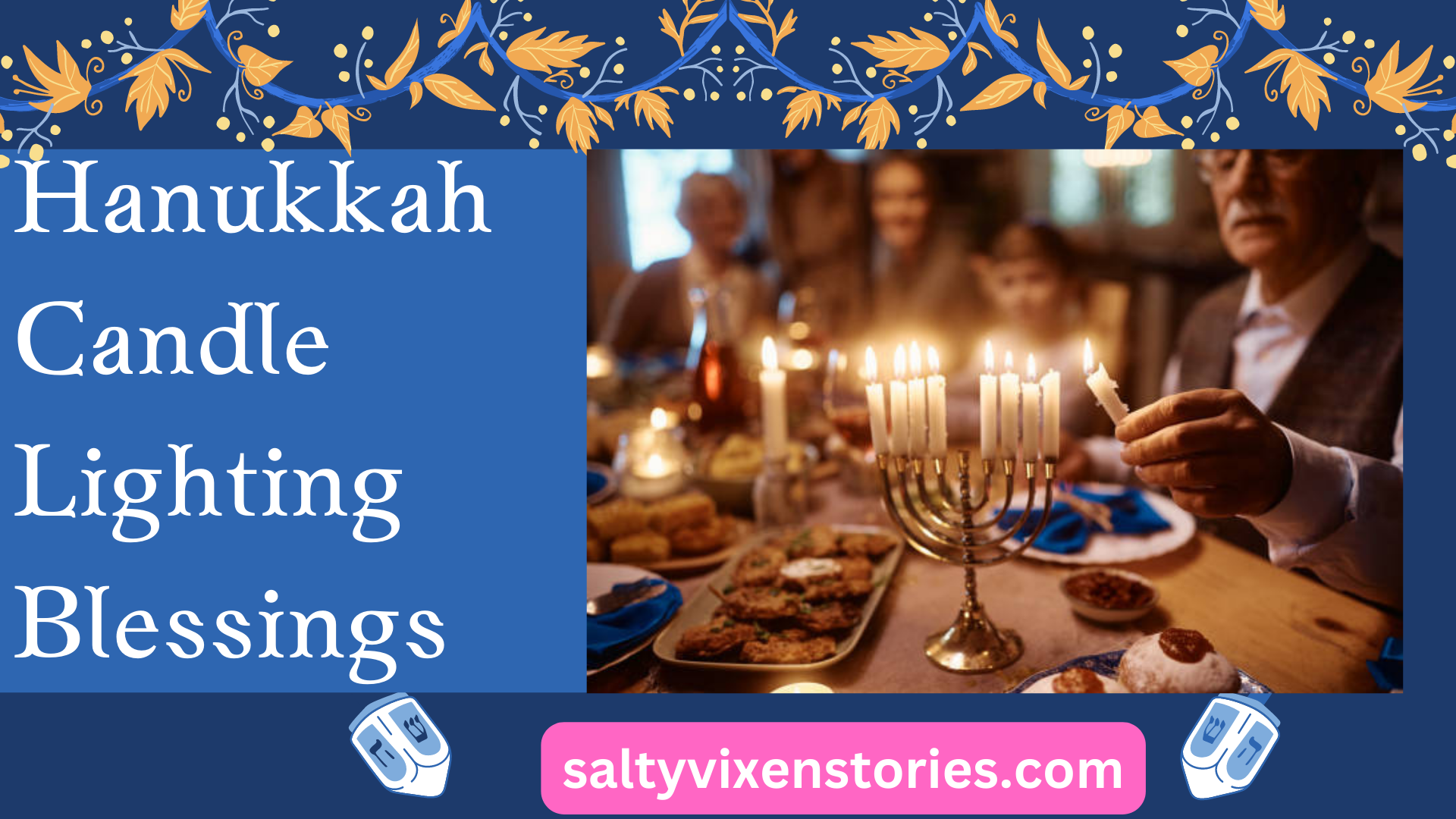Lighting the Hanukkah Menorah (also known as a Hanukkiyah) is one of the most important parts of celebrating the Jewish festival of Hanukkah. This ritual has been observed since the destruction of the Temple in commemoration of the miracle of the Hanukkah lights. One menorah is usually lit for the entire family, though sometimes children like to have their own menorahs to light during the holiday.
The Hanukkah menorah is usually lit after nightfall, when stars appear in the sky. Originally the menorah was then placed outside a home to the left of the doorpost, thereby positioning it opposite the mezuzah on the right. But today the lit menorah is more commonly placed in or near a window. Both options are fine since the most important thing is that passersby are able to see the lit menorah and be reminded of the Hanukkah miracle.
As another option, in Israel many homes have special outdoor niches that are used for displaying menorahs during Hanukkah. Other homes have outdoor lamps that were included as part of the house’s original construction for the purpose of observing Hanukkah.
During Hanukkah candles are added to the menorah from right to left. The number of candles corresponds to the night of Hanukkah, for instance, four candles for the fourth night of Hanukkah. In addition to these candles, on every night of Hanukkah an additional “helper” candle called a shamash is used to light the others.
Hanukkah Candle Lighting Blessings
Every night during Hanukkah members of the family will gather around their menorahs and recite the blessings below as part of the candle lighting ceremony. The first two blessings are recited each night. The third blessing is only recited on the first night of Hanukkah, when the menorah is kindled for the first time.
Blessing 1
English:
Blessed are You, Lord our God, Ruler of the universe, who has sanctified us with Your commandments, and has commanded us to kindle the lights of Hanukkah.
Sephardic/Modern Israeli:
Baruch atah Adonai, Eloheinu Melech Ha-Olam, asher kiddeshanu b’mitzvotav, vitzivanu, lehadlik ner shel Hanukkah.
Common Ashkenazi (Western Europe, Belorussia, Baltic Republics):
Borukh Ato Adoynoy Eloyheynu Melekh Ho-oylom Asher Kiddeshonu Be-mitsvoysov Ve-tsivonu Lehadlik Neyr Shel khanuko.
South Ashkenazi (Poland, Ukraine, Romania, Moldavia):
Burikh Atu Adoynoy Eloyhayni Melekh Hu-oylum Asher Kiddeshuni Be-mitsvoysuv Ve-tsivuni Lehadlik Nayr Shel khaniku.
Blessing 2
This second blessing, which asks us to remember the miracles performed for our ancestors, is also said prior to the Megillah reading on Purim.
English:
Blessed are you, Lord our God, Ruler of the universe, who wrought miracles for our fathers in days of old, at this season.
Sephardic/Modern Israeli:
Baruch atah Adonai, Eloheinu Melech Ha-Olam, she-asah nissim la-avotaynu bayamim ha-hem bazman hazeh.
Common Ashkenazi (Western Europe, Belorussia, Baltic Republics):
Borukh Ato Adoynoy Eloyheynu Melekh Ho-oylom She-oso Nissim La-avoseynu Ba-yyomim Ho-heym Ba-zzman Ha-zze.
South Ashkenazi (Poland, Ukraine, Romania, Moldavia):
Burikh Atu Adoynoy Eloyhayni Melekh Hu-oylum She-usu Nissim La-avosayni Ba-yyumim Hu-haym Ba-zzman Ha-zze.
Blessing 3
This blessing is recited only on the first time the Hanukkah menorah is lit. Called the Shehechiyanu, it is an important blessing that thanks God for sustaining us and reminds us to appreciate the goodness in our lives.
English:
Blessed are You, Lord our God, Ruler of the universe, who has kept us alive, and has preserved us, and enabled us to reach this time.
Sepharidc/Modern Israeli:
Baruch atah Adonai, Eloheinu Melech Ha-Olam, she-hekheyanu v-kiyamanu v-higgianu lazman hazeh.
Common Ashkenazi (Western Europe, Belorussia, Baltic Republics):
Borukh Ato Adoynoy Eloyheynu Melekh Ho-oylom She-hekheyonu Ve-kiymonu Ve-higgi'onu La-zzman Ha-zze.
South Ashkenazi (Poland, Ukraine, Romania, Moldavia):
Burikh Atu Adoynoy Eloyhayni Melekh Hu-oylum She-hekheyuni Ve-kiymuni Ve-higgi'uni La-zzman Ha-zze











